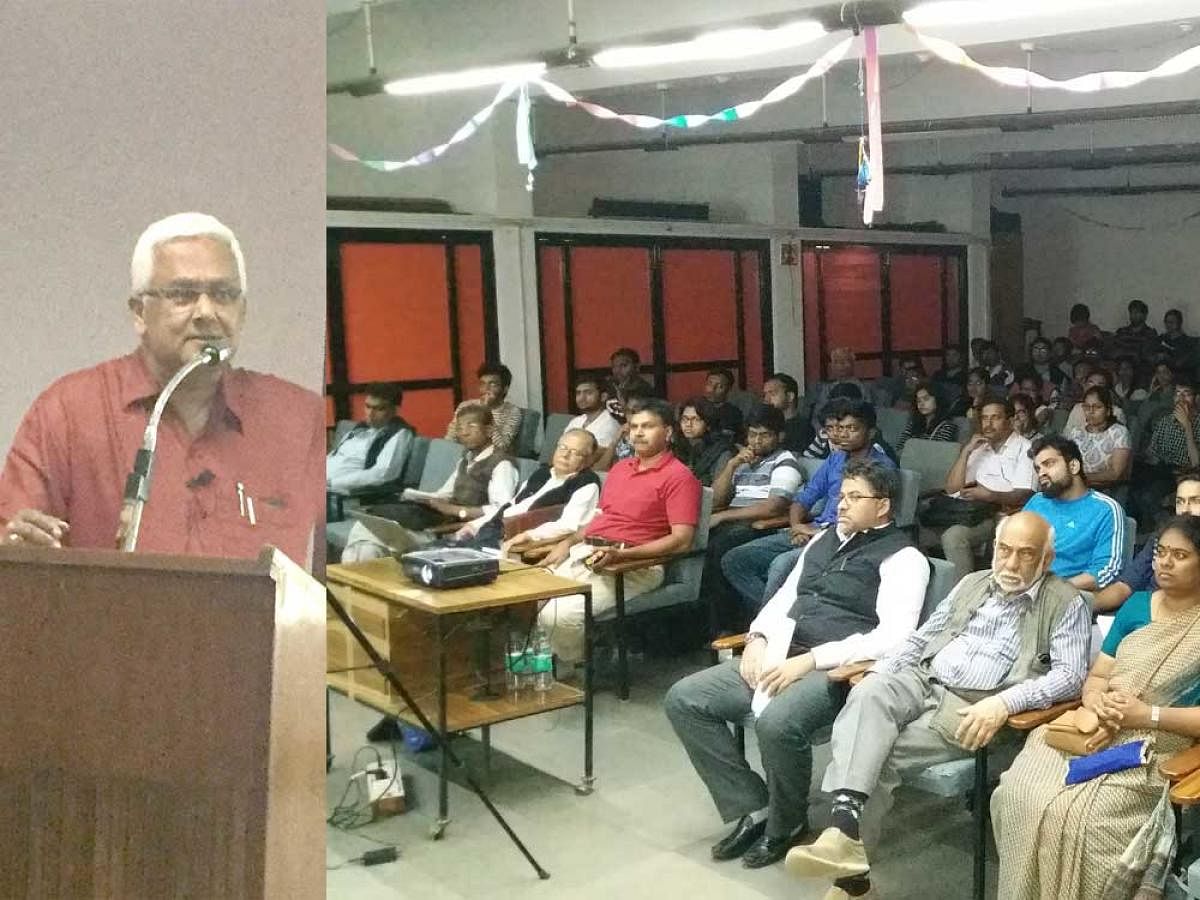
The scientific reasoning in the society is shrinking, says molecular biologist Dr Deepankar Chatterjee. He was speaking at the public interaction on "Scientific Temper- Role of Education, Outreach, Popularization & Law," organised by the Breakthrough in Science and Society in association with Concern, IISc, on November 25.
Addressing a gathering of almost 100 people in the Indian Institute of Science campus, Dr Chatterjee, Prof Suvrat Raju and Prof Dhruvajyoti Mukherjee talked about various aspects of scientific temper.
"I think India is the only country which included the word scientific temper in the constitution. Article 51 A says it is the fundamental duty of every citizen of India to develop the scientific temper," says Prof Mukherjee. "It indicates that it's not only the duty of scientists but also the general public," he added.
Prof Raju spoke about the ethics is the researchers and funding of the corporates. "The involvement of scientists in the area of Intellectual property rights is really disappointing."
Describing a personal experience in the research field, he said: "The scientific community is reluctant to discuss the absurdity in the 'probability risk assessment' of the nuclear reactors (the assessment of the reactor companies about the probability of risk of damage)." A few years ago, Prof Raju wrote a paper describing why the 'probability risk assessment' calculation "doesn't make sense" and he sent it to a "well-known journal which discusses this."
"It got a positive peer review. But they did not publish it for ten months. When I asked about this, the editor wrote a mail to me saying 'what bothers me is the sensitive nature of the matter in your paper. In my opinion, this is the matter that should be brought to the notice of the atomic energy department for detailed discussion in-house." Prof Raju said the editor also wrote that our research "should be in such way that it does not become a cause of disturbance in the public domain."
He added that he managed to get it published in another international journal. "It shows the great reluctance of people to have debates on the issues like this because this offends the establishment."